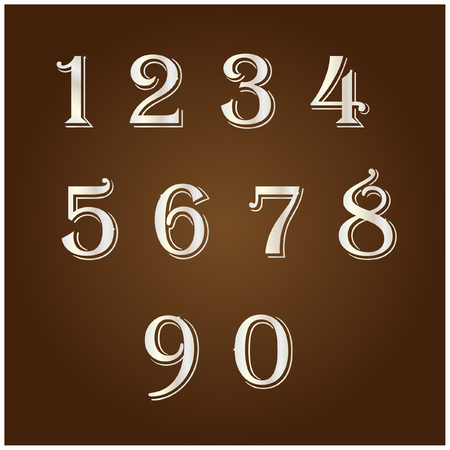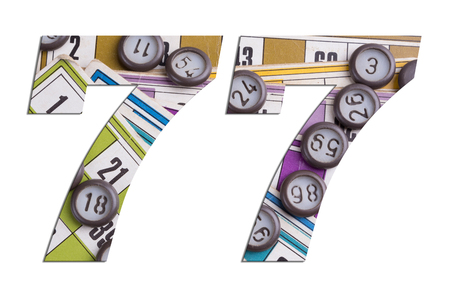1. Understanding Bazi: An Ancient Chinese Wisdom
If you’ve ever wondered how ancient traditions still shape modern lives, Bazi—or the Four Pillars of Destiny—offers a fascinating window into this connection. Originating from Chinese metaphysics over a thousand years ago, Bazi helps people understand themselves and make life decisions with more clarity. While it may sound mystical, its core ideas are actually very systematic and easy to grasp.
What Is Bazi?
Bazi translates to “Eight Characters” in Mandarin. These eight characters are drawn from your exact birth year, month, day, and hour, each represented by two elements: a Heavenly Stem and an Earthly Branch. In the simplest terms, Bazi is like a unique cosmic code for every person—a personal map that can shed light on strengths, weaknesses, opportunities, and potential challenges.
The Four Pillars Explained
| Pillar | Time Period | Represents |
|---|---|---|
| Year Pillar | Birth Year | Family background, ancestors, early influences |
| Month Pillar | Birth Month | Parents, career foundation, formative years |
| Day Pillar | Birth Day | Yourself (main personality), relationships, adulthood |
| Hour Pillar | Birth Hour | Children, ambitions, later years |
Bazi’s Historical Roots and Its Role in Chinese Metaphysics
Bazi was first developed during the Tang Dynasty (618–907 AD) as a method for imperial advisors to guide rulers through complex decisions. Over centuries, it became woven into daily Chinese life—from matchmaking to business planning. At its heart, Bazi is built on the principles of Yin-Yang balance and the Five Elements (Wood, Fire, Earth, Metal, Water). By understanding how these forces interact in your chart, you gain insights that can guide choices about career paths, relationships, health, and timing of important events.
2. The Journey: Bazi’s Transition from East to West
Bazi, also known as the Four Pillars of Destiny, started as an ancient Chinese system for understanding a person’s fate and personality. But how did this centuries-old practice find its way into the hearts and minds of Americans? Let’s trace Bazi’s journey as it crossed continents and adapted to a new cultural landscape.
Bazi’s Early Days in America
In the late 20th century, the United States saw a growing interest in Eastern philosophies, alternative medicine, and holistic wellness. This wave brought concepts like feng shui and acupuncture into mainstream culture. Bazi quietly followed, initially staying within Chinese-American communities before catching the attention of a broader audience looking for personalized life guidance.
Cultural Adaptation: Making Bazi Relatable
For Bazi to become popular in the U.S., it needed to adapt. Here are some ways Bazi shifted to fit American lifestyles:
| Traditional Bazi | Modern American Approach |
|---|---|
| Consultations mainly by word of mouth or family tradition | Online platforms, workshops, and social media outreach |
| Classical terminology and Chinese metaphors | User-friendly language and relatable analogies (e.g., likening elements to career strengths or relationship styles) |
| Emphasis on fate and destiny | Focus on self-awareness, personal growth, and actionable advice |
Integration with Modern Life Guidance
Americans tend to value self-improvement and practical tools for decision-making. Bazi found its place alongside astrology, personality tests, and coaching systems. People began using their birth charts not just to predict events but to gain insight into career choices, relationships, health, and even work-life balance.
Why Did Bazi Catch On?
- Personalization: Everyone gets a unique chart based on their birthday and time—no generic advice.
- Cultural Fusion: Influencers and holistic practitioners blended Bazi concepts with Western ideas about psychology and success.
- Accessibility: Digital tools made it easy for anyone to calculate their chart online and book consultations via Zoom or apps.
Bazi’s New Role in American Culture
Bazi is no longer just an ancient tool; it’s now part of the diverse toolkit Americans use for self-discovery. Whether you’re seeking direction during a career change or wanting to understand your relationships better, Bazi offers a data-driven yet deeply personal perspective—one that speaks to the modern desire for both insight and empowerment.

3. Bazi Meets Modern Science and Data
Bazi, also known as the Four Pillars of Destiny, has a long history rooted in Chinese tradition. But what happens when this ancient system crosses paths with the modern American mindset—one that values statistics, empirical results, and scientific thinking? Let’s dive into how Bazi is being re-examined through a data-driven lens in today’s world.
Why Americans Are Skeptical—And Curious
In the U.S., people are naturally skeptical of systems that sound mystical or unscientific. Americans love proof: charts, studies, and data. So when Bazi is introduced as a tool for understanding personality, career potential, or compatibility, many ask: “Does it really work?” Instead of dismissing it, more Americans are analyzing Bazi using modern scientific tools and statistical methods.
How Data-Driven Minds Analyze Bazi
The rise of big data and AI has encouraged a new way to look at old wisdom. Here’s how some are approaching Bazi:
| Traditional Approach | Modern, Data-Driven Approach |
|---|---|
| Interpreted by intuition and ancient texts | Compared with psychological tests (like Myers-Briggs) |
| Passed down through generations | Tested against life outcomes (career, relationships) |
| Focuses on elements and animal signs | Analyzed using large sample groups and surveys |
| Personal stories and anecdotal evidence | Seeks patterns with statistical significance |
Bazi Insights vs. Empirical Results: The Ongoing Debate
Some early findings from data-driven studies suggest that Bazi readings can sometimes align with certain personality traits or life events—but not always in predictable ways. The American approach is to use case studies, collect data from diverse backgrounds, and look for repeatable trends.
Sample Comparison: Bazi vs. Modern Personality Tests
| Bazi Reading Example | Modern Personality Test Example | Common Ground? |
|---|---|---|
| “Strong Wood Day Master” = resilient, adaptable personality | “High Openness” on Big Five test = creative, flexible thinker | Both suggest adaptability and creativity traits may be present |
| “Weak Metal Day Master” = sensitive, careful decision-maker | “High Agreeableness” on Big Five = cooperative, empathetic person | Both indicate sensitivity to others’ needs and social harmony |
The Role of Technology in Modern Bazi Analysis
Apps and websites now make it easy for Americans to calculate their Bazi charts instantly. Some platforms even use algorithms to compare user data over time, looking for patterns between Bazi profiles and real-life outcomes like job changes or relationships.
The Future: Data Plus Tradition?
This new intersection doesn’t aim to prove or disprove Bazi entirely—it’s about blending tradition with modern analysis. For Americans curious about self-discovery tools, seeing ancient wisdom through a scientific lens offers a fresh perspective while respecting both the past and present.
4. Practical Applications in American Life
Bazi, also known as Four Pillars of Destiny, is no longer just an ancient Chinese metaphysical tool. In today’s America, more people are turning to Bazi for personalized life guidance. Let’s explore how Americans use Bazi in everyday life—especially in career planning, relationships, wellness, and key decision-making.
Career Planning: Discovering the Right Path
Americans often seek out personality tests or career coaches to find their strengths. Now, some are adding Bazi analysis to the mix. By analyzing birth data, Bazi reveals natural talents, work styles, and potential challenges. For instance:
| Bazi Element | Personality Traits | Suggested Careers |
|---|---|---|
| Wood | Creative, growth-oriented | Designer, Entrepreneur |
| Fire | Charismatic, energetic | Sales, Public Relations |
| Earth | Stable, practical | Project Manager, Teacher |
| Metal | Organized, detail-focused | Engineer, Analyst |
| Water | Adaptable, strategic thinker | Consultant, Researcher |
This personalized approach helps Americans choose careers that align with their natural strengths, boosting satisfaction and success.
Relationships: Building Better Connections
Bazi isn’t just about work—it’s also about relationships. Some Americans use Bazi compatibility readings before dating or getting married. By comparing charts, they learn how to communicate better and understand each other’s needs. For example:
- A couple discovers they both have strong “Earth” elements—leading them to focus on stability and loyalty.
- Friends with opposite elements (like Fire and Water) learn strategies for balancing their differences.
Wellness: Enhancing Mind and Body Balance
The holistic wellness trend in the U.S. has made space for Eastern wisdom like Bazi. People use their charts to identify stress triggers or health risks based on elemental imbalances. Here’s how it might look:
| Bazi Element Weakness | Potential Wellness Focus |
|---|---|
| Weak Wood | Add more green veggies; try outdoor activities |
| Weak Fire | Pursue hobbies that inspire passion; practice mindfulness |
| Weak Earth | Create routines; focus on nutrition and sleep quality |
| Weak Metal | Declutter spaces; meditate for clarity of mind |
| Weak Water | Add calming practices like yoga; stay hydrated |
This tailored wellness advice gives Americans actionable steps based on their unique energy profile.
Decision-Making: Personalized Guidance for Modern Choices
Bazi offers a fresh perspective when facing big decisions—like moving cities or starting a business. Instead of one-size-fits-all advice, Americans appreciate how Bazi pinpoints personal timing (“luck cycles”) and individual strengths or weaknesses. This empowers people to make choices with greater confidence and self-awareness.
The Power of Personalization: Real-Life Stories
- A tech entrepreneur used Bazi to identify her best year for launching a startup—and avoided burnout by understanding her limits.
- A college student consulted a Bazi expert for guidance on picking a major that matched his Water element’s strategic thinking.
- An HR manager improved team harmony by considering employees’ elemental strengths during project assignments.
Bazi in the American Context: Blending Old Wisdom with New Lifestyles
The beauty of Bazi is how it adapts to modern American life. Whether it’s finding the right job fit in Silicon Valley or navigating relationships in New York City, Americans customize Bazi insights to suit their diverse goals and values—making ancient wisdom feel truly current.
5. Bazi and Personal Growth: Navigating Modern Challenges
Understanding Bazi for Self-Awareness in America
Bazi, or the Four Pillars of Destiny, may seem like an ancient Chinese tradition, but in todays fast-paced American society, more people are turning to Bazi as a tool for self-discovery and personal development. With its focus on birth data and elemental balance, Bazi offers a unique perspective that goes beyond typical personality tests. Americans are finding value in understanding their strengths and weaknesses through the lens of Bazi, helping them make better choices in careers, relationships, and even daily routines.
Mental Health and Emotional Resilience
The uncertainty and pressure of modern life—especially in competitive cities like New York or Los Angeles—can take a toll on mental health. Americans who study Bazi report that it gives them a framework for understanding why they react to stress in certain ways. For example, someone with a strong “Yang Wood” element may naturally be resilient but prone to stubbornness during challenges. Recognizing these patterns helps people develop healthier coping strategies, such as mindfulness practices or setting realistic goals.
How Americans Use Bazi for Self-Growth
| Bazi Element/Pattern | Personal Insight | Modern Application |
|---|---|---|
| Strong Fire Element | Passionate, energetic but easily overwhelmed | Focus on work-life balance; try yoga or meditation to cool down emotions |
| Weak Water Element | Tends to worry or overthink under stress | Practice journaling or seek therapy for emotional clarity |
| Dominant Metal Element | Disciplined, perfectionist tendencies | Learn to accept imperfections; schedule downtime to avoid burnout |
| Earth Clashes in Chart | Difficulty making decisions or feeling secure | Create structure through routines; set small, achievable goals |
Bazi as a Guide Through Change and Uncertainty
In a world where remote work, gig economies, and constant social changes are the norm, many Americans use Bazi to navigate periods of transition. By analyzing their annual luck cycles or Day Master elements, they can anticipate both opportunities and challenges ahead. This proactive approach allows individuals to prepare mentally and emotionally for what’s coming next—whether it’s starting a new job, moving cities, or managing family responsibilities.
Integrating Bazi with Western Approaches
The growing popularity of Bazi among Americans lies in its compatibility with modern self-help tools. Many users combine their Bazi readings with therapy, coaching sessions, or even apps focused on productivity and well-being. By doing so, they create a holistic toolkit that addresses both inner traits (from Bazi) and practical solutions (from Western methods), making personal growth both meaningful and actionable in today’s dynamic environment.
6. Debate and Critique: Bazi in Contemporary Discourse
Bazi’s Place in Modern America
Bazi, also known as Four Pillars of Destiny, has found a new audience in the United States. While some see it as an insightful tool for self-discovery, others question its relevance and accuracy in today’s world. Let’s dive into the ongoing debates about Bazi’s validity, cultural impact, and ethical concerns within American society.
Supporters’ Perspectives
Embracing Ancient Wisdom for Modern Challenges
Fans of Bazi believe that this ancient Chinese system offers practical insights for navigating modern life. They argue that understanding your Bazi chart can:
- Boost self-awareness: By analyzing birth data, people discover their strengths, weaknesses, and hidden potential.
- Guide career and relationships: Many use Bazi to make informed decisions about jobs, partnerships, and even timing important life events.
- Bridge cultures: For Asian Americans or those interested in Eastern philosophy, Bazi represents a meaningful link to heritage and tradition.
Popular Uses Among Supporters
| Bazi Application | Example |
|---|---|
| Career Planning | Selecting jobs that match one’s elemental strengths |
| Relationship Advice | Understanding compatibility based on birth charts |
| Mental Health | Gaining perspective during stressful times |
Critics’ Arguments
Skepticism About Scientific Validity
On the other hand, critics highlight several concerns:
- Lack of scientific evidence: Many in the U.S. point out that Bazi is not supported by empirical research or peer-reviewed studies.
- Cultural mismatch: Some argue that translating Bazi concepts into Western contexts risks misunderstanding or oversimplification.
- Potential for misuse: There’s worry that relying too much on Bazi could lead to fatalism or poor decision-making if taken too literally.
Main Points of Critique
| Criticism | Description |
|---|---|
| Pseudoscience Concerns | No scientific backing; seen as superstition by some skeptics |
| Cultural Appropriation Risks | Poor adaptation may strip away original meaning or respect for tradition |
| Ethical Dilemmas | Dangers of making major life choices based solely on fortune-telling tools |
The Ongoing Conversation: Where Does Bazi Fit?
The debate over Bazi in America is lively and far from settled. Supporters find value in its personal guidance and cultural richness, while critics push for caution and critical thinking. As Bazi continues to gain popularity among diverse groups, these discussions shape how it is practiced and perceived in contemporary American life.
7. The Future of Bazi: Toward a Holistic American Life
Embracing Hybrid Spirituality
Bazi, once an ancient Chinese tool for understanding life’s cycles, is now finding its way into the fabric of modern American spirituality. As more Americans seek personalized and diverse spiritual experiences, Bazi is being blended with practices like mindfulness, yoga, and even astrology. This hybrid approach allows people to explore their destiny while respecting their unique cultural backgrounds and beliefs.
The Rise of Digital Bazi Tools
Technology is reshaping how Americans interact with Bazi. Mobile apps and online calculators make it easy to generate your BaZi chart in seconds—no need for paper, pen, or knowledge of Chinese characters. Social media communities share daily energy updates and quick tips based on your birth data. Here’s how digital tools are transforming Bazi:
| Digital Tool | Main Features | American User Benefits |
|---|---|---|
| Bazi Apps | Instant chart generation, daily advice | Accessible insights anytime, anywhere |
| Online Consultations | Video sessions with experts worldwide | No language barriers, flexible scheduling |
| Community Forums | Peer discussions, Q&A threads | Cultural adaptation, shared learning experiences |
Integrating Bazi with Self-Help & Psychology
Bazi isn’t just about fate—it’s becoming part of broader self-help and psychological movements in the U.S. Coaches and therapists increasingly use Bazi frameworks alongside Western personality tools like the Myers-Briggs Type Indicator (MBTI) or Enneagram. This integration helps individuals see patterns in their behaviors and relationships from both Eastern and Western perspectives.
Example: Combining Bazi & MBTI Insights
| Bazi Element (Day Master) | Similar MBTI Traits | Practical Application |
|---|---|---|
| Yang Wood (Jia) | ENTJ: Leadership & Initiative | Career planning, leadership development |
| Yin Water (Gui) | INFP: Imagination & Sensitivity | Mental health support, creative projects |
| Yang Metal (Geng) | ISTJ: Structure & Reliability | Time management, financial planning |
The American Way Forward: Personalized Guidance for Everyday Life
Bazi’s evolving role in America is all about personalization. Whether you’re seeking clarity on career moves, relationship dynamics, or self-growth, Bazi can offer tailored advice that fits your lifestyle. As it becomes more accessible through technology and blends seamlessly with other personal development tools, Bazi is poised to become an integral part of holistic American living—helping people find balance in a fast-changing world.

